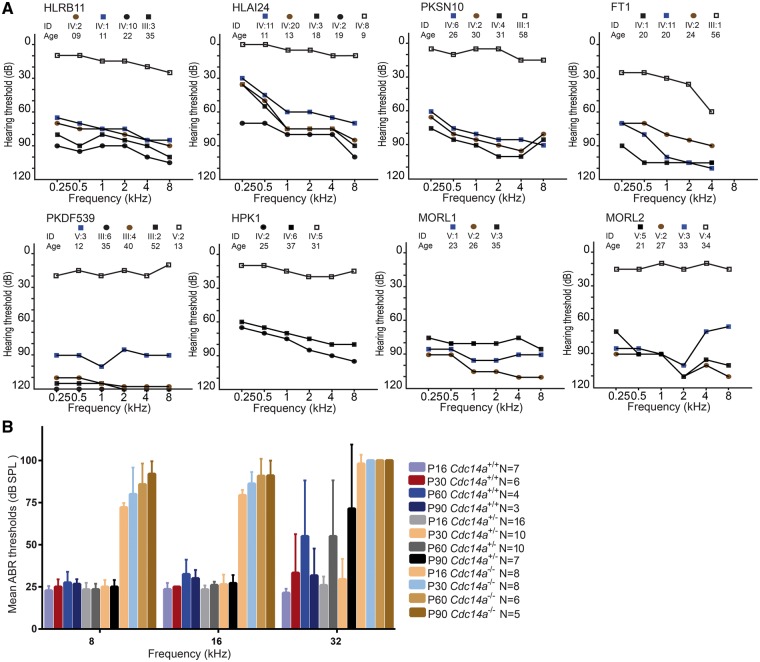Figure 3.
Mutations of CDC14A cause progressive moderate-to-profound hearing loss in human and mouse. (A) Pure tone air conduction audiograms of right ears of affected and normal hearing heterozygous individuals of eight DFNB32 families recorded under ambient noise conditions at 0.25, 0.5, 1, 2, 4 and 8 kHz input. (B) In mouse, average auditory brainstem response (ABR) thresholds were recorded for 8, 16 and 32 kHz input at ages P16, P30, P60 and P90. The four different mutant alleles of mouse Cdc14a have indistinguishable ABR thresholds and were combined here (see Supplementary Material, Fig. S8B). ABR thresholds of right ears of wild-type (C57B6/N; Cdc14a+/+) mice, heterozygotes (Cdc14a+/tm1a, Cdc14a+/tm1b, Cdc14a+/tm1d collectively designated here Cdc14a+/−), homozygotes and compound heterozygotes (Cdc14atm1a/tm1a, Cdc14atm1b/tm1b, Cdc14atm1a/tm1b and Cdc14atm1d/tm1d,collectively designated Cdc14a−/−). Error bars are standard deviations. N = number of animals tested.

